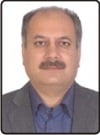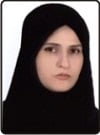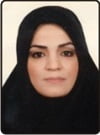A Comparative Study of Muslim and Western Pedagogues’ Educational Perspectives: Contextualization of Comparative Education as a University's Discipline
Abstract
ABSTRACT: During the two recent decades, the world has witnessed that regional conflicts are increasing because of the type of relationships among civilizations. Most of these conflicts have been resulted from political, social, and economical relations among Muslim countries and Western countries at the Middle East. In such a situation, for reducing millions of people’s sufferings, educational systems and especially higher education system surely play a vital role. Higher education system, through developing humanities-related disciplines, could increase levels of common understanding among intellectuals of the involved societies. On this score, comparative education has the power to encourage hearing other cultures out and international mutual understanding among people round the globe through educational system. Unfortunately, comparative education as a university discipline has not developed considerably at higher education systems in the Middle East countries. The present paper, first, tries to briefly explore the present situation of comparative education science in the region and, then, through comparing educational viewpoints of three Muslim pedagogues: Al-Farabi, Avicenna, and Al-Ghazali; and three famous educators of the West world: John Locke, Jean-Jacques Rousseau, and John Dewey, demonstrate the possibilities of developing comparative education science as a university discipline in the Middle East. The comparisons between Muslim educators and their counterparts in the West, however, made in this paper have bilateral benefits.
KEY WORDS: Comparative education, educational perspective, Muslim, Middle East, pedagogues, Western, higher education system, and understanding.



About the Authors: Dr. Abbas Madandar Arani is an Assistant Professor at the Department of Education LU (Lorestan University) in Iran; Mrs. Lida Kakia is a Ph.D. Student in Comparative Education at SU (Sofia University) in Bulgaria and at present works as a Teacher Counselor at different schools in Tehran, Iran; and Mrs. Batol Moazani is M.A. (Master of Arts) in Islam History and at present works as a Teacher at different schools in Tehran, Iran. The authors can be contacted via their e-mails at: rie2000@gmail.com and lida.kakia@gmail.com
How to cite this article? Arani, Abbas Madandar, Lida Kakia & Batol Moazani. (2014). “A Comparative Study of Muslim and Western Pedagogues’ Educational Perspectives: Contextualization of Comparative Education as a University's Discipline” in EDUCARE: International Journal for Educational Studies, Vol.6(2) February, pp.111-118. Bandung, Indonesia: Minda Masagi Press owned by ASPENSI in Bandung, West Java and FKIP UMP in Purwokerto, Central Java, ISSN 1979-7877.
Chronicle of the article: Accepted (December 29, 2013); Revised (January 20, 2014); and Published (February 17, 2014).
Full Text:
PDFReferences
Aldrich, R. (1994). “Locke” in PROSPECTS: The Quarterly Review of Comparative Education, 24(1/2), pp.61-76. Available [online] also at: www.ibe.unesco.org/fileadmin/user_upload/archive/publications/ThinkersPdf/locke.PDF [accessed in Tehran, Iran: December 15, 2013].
Al-Harthi, H. (2007). “The ‘Insider Others’ versus ‘the Outsider Others’ in Curriculum in the Middle East”. Paper presented at XXX World Congress of Comparative Education Societies, in Sarajevo, on 3-7 September.
Allen, C. & J.S. Nielsen. (2002). “Summary Report on Islamophobia in the EU After 11 September” in EUMC, May.
Almasi, A.M. (1998). History of Education in Islam and Iran. Tehran: Amir Kabir Publisher [in Persian].
Al-Naqib, A. (1993). “Avicenna” in PROSPECTS: The Quarterly Review of Comparative Education, XXIII (1/2), pp.53-69. Available [online] also at: www.ibe.unesco.org/fileadmin/user_upload/archive/publications/ThinkersPdf/avicenne.pdf [accessed in Tehran, Iran: December 15, 2013].
Al-Talbi, A. (1993). “Al-Farabi” in PROSPECTS: The Quarterly Review of Comparative Education, XXIII (1/2), pp.353-372. Available [online] also at: www.ibe.unesco.org/fileadmin/user_upload/archive/publications/ThinkersPdf/farabie.pdf [accessed in Tehran, Iran: December 15, 2013].
Bailyn, B. (1992). The Ideological Origins of the American Revolution. Cambridge, MA: Harvard University Press.
Boyd, W. (1963). The Educational Theory of Jean-Jacques Rousseau. New York: Russell & Russell.
Bray, Mark. (2001). Comparative Education: Continuing Traditions, New Challenges, and New Paradigms. Boston, Dordrecht, London: Kluwer Academic Publishers, Translated to Persian by Abbas Madandar Arani (2005), Tehran: Jungle Publisher.
Caspary, W.R. (2000). Dewey on Democracy. Ithaca and London: Cornell University Press.
Cowen, R. (1996). “Last Past the Post: Comparative Education, Modernity, and Perhaps Post-Modernity” in Comparative Education, 32(2), pp.151-170.
Cowen, R. (2000). “Comparing Futures or Comparing Pasts?” in Comparative Education, 36(3), pp.333-342.
Enan, M.A. (2007). Ibn Khaldun: His Life and Works. British Columbia: The Other Press.
Fakhry, M. (2002). Al-Farabi, Founder of Islamic Neo-Platonism: His Life, Works, and Influence (Great Islamic Thinkers). Oxford: Oneworld Publications.
Grant, N. (2000). “Tasks for Comparative Education in the New Millennium” in Comparative Education, 36(3), pp.309-317.
Halabi, A.E. (1980). Three Great Philosophers. Tehran: Zavar Press [in Persian].
Haque, A. (2004). “Psychology from Islamic Perspective: Contributions of Early Muslim Scholars and Challenges to Contemporary Muslim Psychologists” in Journal of Religion and Health, 43(4), pp.357-377.
Henry, C., H. Nasr & U. Yahya. (1993). History of Islamic Philosophy. London: Keagan Paul International.
Khoi, Le Thanh. (1981). L'education Compare'e. Paris: Armand Colin, Translated to Persian by Mohammad Yamani (1996), Tehran: Samt Press.
Madandar Arani, Abbas. (2003). “Review of Book: Comparative Education, Continuing Traditions, New Challenges, and New Paradigms (The Netherlands: Dordrecht), Edited by Prof. Mark Bray” in Peabody Journal of Education, 79(4). USA: University of Vanderbilt, pp.138-150.
Madandar Arani, A. & P. Abbasi. (2007). “A Second Look at Comparative Education and its Missions” in Quarterly Journal of Education, 23(2), pp.101-126 [in Persian].
Moseley, A. (2007). John Locke: Continuum Library of Educational Thought. London: Alexander Publication Information.
Nofal, N. (1993). “Al-Ghazali” in PROSPECTS: The Quarterly Review of Comparative Education, XXIII, ¾, pp.519-542. Available [online] also at: www.ibe.unesco.org/fileadmin/user_upload/archive/publications/ThinkersPdf/al-ghazali.pdf [accessed in Tehran, Iran: December 15, 2013].
Oweiss, I.M. (1988). Ibn Khaldun, the Father of Economics, Arab Civilization: Challenges and Responses. New York: New York University Press.
Rajaee, F. (2003). Identity Problem of Today's Iranian. Tehran: Naye Publisher [in Persian].
Sepehri, M. & A. Madandar Arani. (2007). “The Role of Educational Systems in International Crises: A Reappraisal of Middle East Countries”. Paper presented at XXX World Congress of Comparative Education Societies, in Sarajevo, on 3-7 September.
Simpson, M. (2006). Rousseau's Theory of Freedom. London: Continuum Books.
Westbrook, R.B. (1991). John Dewey and American Democracy. Ithaca, New York: Cornell University Press.
Westbrook, R.B. (1993). “John Dewey” in PROSPECTS: The Quarterly Review of Comparative Education, XXIII (1/2), pp.277-291. Available [online] also at: www.ibe.unesco.org/fileadmin/user_upload/archive/publications/ThinkersPdf/Dewey.pdf [accessed in Tehran, Iran: December 15, 2013].
Wilson, D.N. (2003). “The Future of Comparative and International Education in a Globalised World” in Mark Bray [ed]. Comparative Education: Continuing Traditions, New Challenges, and New Paradigms. The Netherlands: Dordrecht.
Zarinkob, A.H. (2004). Literary Criticism. Tehran, Iran: Amir Kabir, 7th edition.
EDUCARE: International Journal for Educational Studies. Ciptaan disebarluaskan di bawah Lisensi Creative Commons Atribusi-BerbagiSerupa 4.0 Internasional
